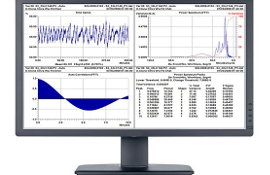Interpreting your system health score:
- 8.0 In the top 2% of all systems’ health scores, indicative of an aggressive proactive response to identified system health risks.
- 7.0 In the top 8%. Emerson’s definition of best in class performance is a score of 7 and above.
- 6.0 In the top 20%. A positive indication that identified risks are in need of some routine attention.
- 5.0 At the center of the bell curve of all system health scores. Immediate action is advised.
- 4.0 In the bottom 20%. Urgent action is advised.










